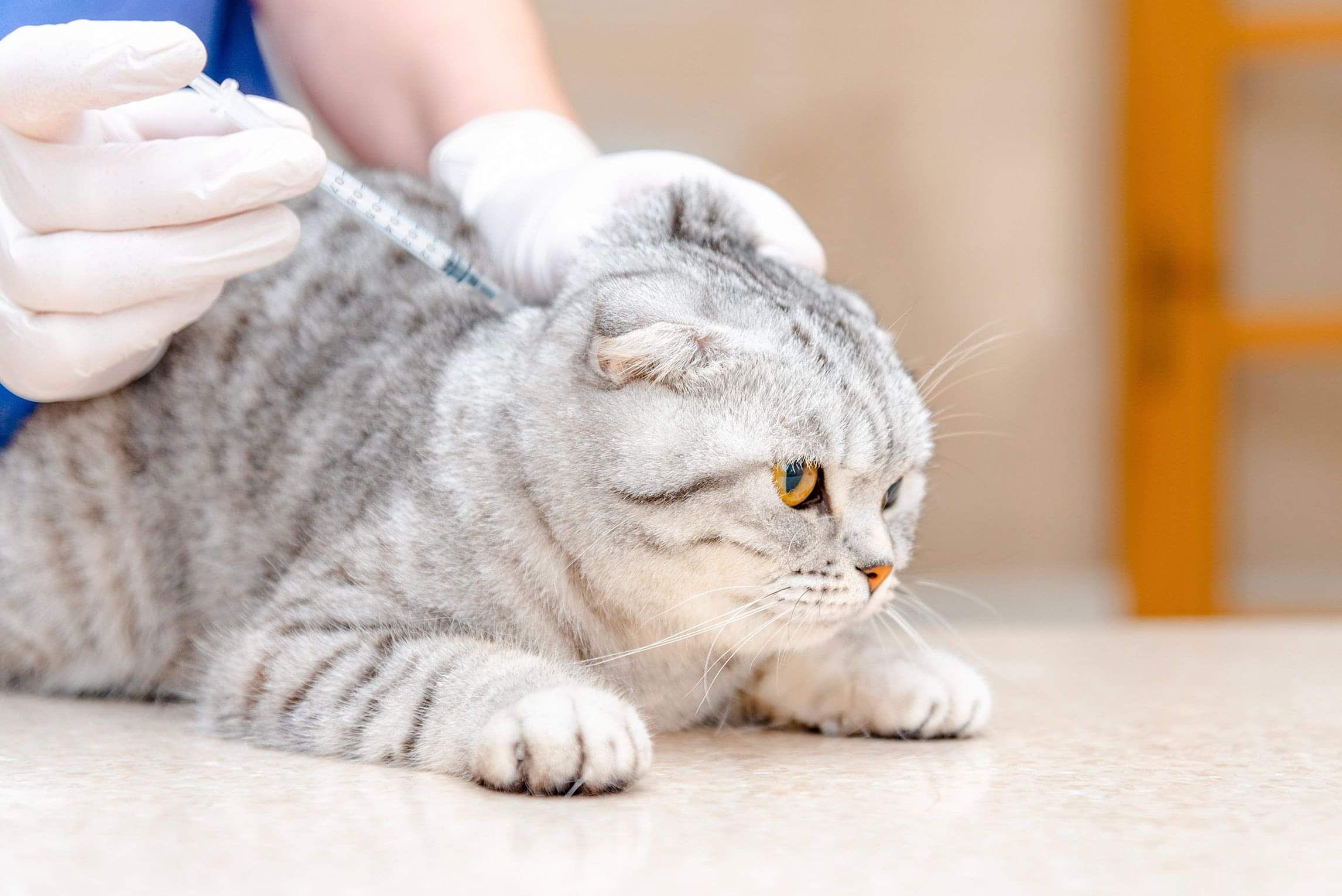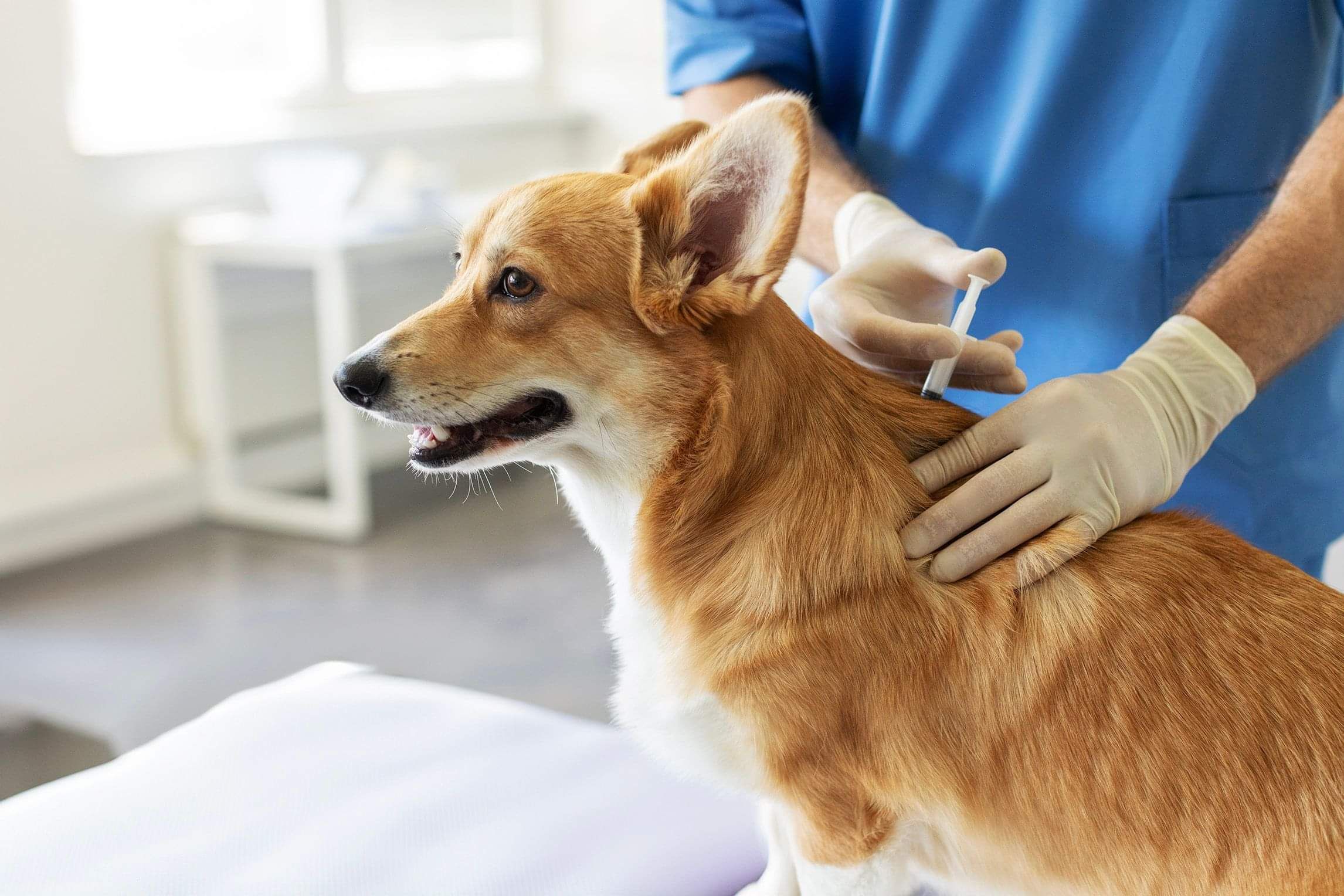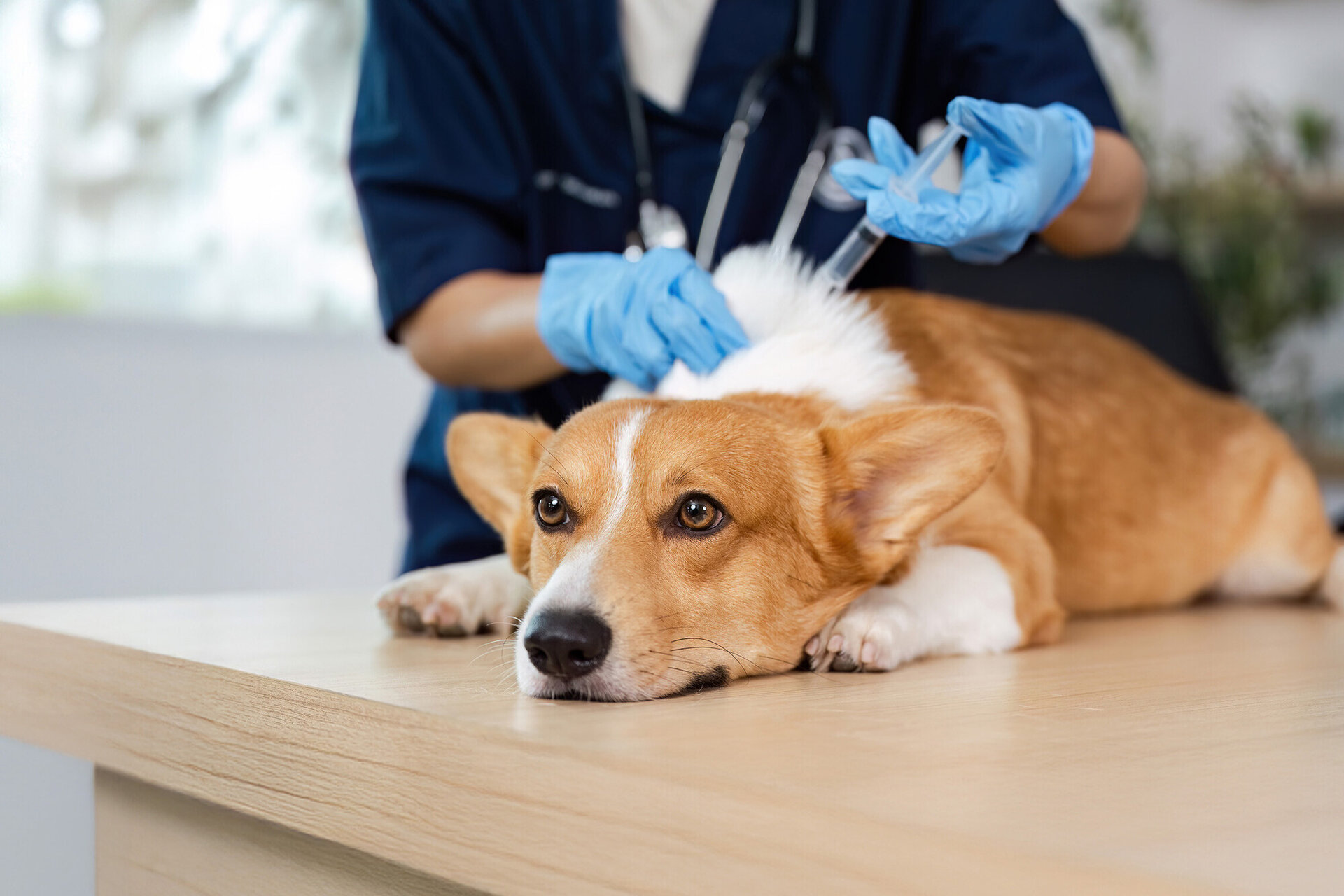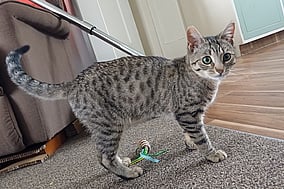OUR APPROACH
Why vaccinate?
Vaccinations are an integral part of maintaining your pet’s health by helping protect them from the significant risk of severe and sometimes fatal diseases they may encounter in the environment or through other animals. Widespread use of vaccinations protects not only the vaccinated individual but also the community they live in.
Keeping pets healthy, year round
While vaccinations do not guarantee complete protection, they help prepare your pet’s immune system to fight the disease, reducing the severity of infection for a quicker recovery, minimising the chance of your pet catching a disease in the first place, and helping prevent further spread of the disease in the environment.
For further information and research, the Companion Animal Veterinarians (CAV) branch of the NZVA has developed the following info sheet: CAV_vaccinating_your_pet.pdf
Find below further resources on vaccinating your pet.
Vaccination guidelines for cats
Core cat vaccinations aim to help prevent at least three diseases in kittens and cats: Feline Panleukopenia Virus (FPV), Feline Herpesvirus 1 (FSV1), and Feline Calicivirus (FCV).
What are these diseases?
FPV (also called Feline Distemper, Feline Parvovirus or Feline Enteritis) is a highly contagious virus of the parvovirus group, with a high mortality rate. It is extremely “hardy” and may survive for months or years. It is easily transmitted from cat to cat or from human to cat. Transmission can also occur via feeding equipment, litter trays, bedding, fleas, from an infected pregnant cat to her unborn kittens and by contact through hands, clothing and shoes.
Clinical signs of Feline Panleukopenia can include sudden-onset fever, loss of appetite, dehydration, depression, vomiting, and/or a “hunched” appearance. Treatment involves alleviating vomiting and diarrhoea to prevent subsequent dehydration and steps to prevent secondary bacterial infections until the cat’s natural immune system takes over.
Feline Herpesvirus 1 and Feline Calicivirus are the most common causes of Feline Respiratory Disease (FRD), often called “cat flu” or “cat snuffles”. The most common symptoms of FRD are sneezing, discharge from the eyes and/or nose and loss of appetite. FRD is spread similarly to the Feline Panleukopenia Virus.
When cats are infected with the virus, they do not always show signs of illness, but can still be infectious to other cats, sometimes becoming ‘carriers’ of the disease. Stress factors such as illness or trauma, change of home, breeding, travelling, attending cat shows, house renovations, or a new person or pet in the household can be enough to trigger an episode of disease in a carrier cat.
When should my cat be vaccinated?
8 weeks of age – 1st vaccination.
12 weeks of age – 2nd vaccination.
16 weeks of age – 3rd vaccination.
6 -12 months of age – 1st booster.
After this, we recommend an annual vaccination for FRD and a three-yearly vaccination for FPV. Your vet may recommend a different schedule depending on your cat’s risk profile. For example, exclusively indoor cats who don’t go to a cattery have a much lower risk.
Why do we give vaccinations?
While kittens suckle from their mother, they receive temporary immunity from disease primarily through the mother’s colostrum. This immunity is in the form of proteins called antibodies, and for the first 12-24 hours after birth, the kitten’s intestine allows the absorption of these antibodies directly into the bloodstream.
This maternal immunity is only beneficial during the first few weeks of life. At some point, the level of immunity falls, and the kitten must begin to produce its own protection against disease. Vaccines are used for this purpose.
As long as the mother’s antibodies are present, vaccinations do not have a good chance of stimulating the kitten’s immune system. This is why we wait until 8 weeks of age to begin the vaccination course. In some uncommon situations, where there is a high risk of infection, your veterinarian may recommend starting the course at 6 weeks of age.
Vaccination guidelines for dogs
Many diseases can be fatal to dogs; however, we can use very effective vaccines to help prevent them. The core vaccine helps to protect against the dreaded Parvovirus, the most commonly known virus to affect puppies. Distemper and Hepatitis are also covered by the core vaccine but are seen less often. Vaccines are also available against Tracheobronchitis and Leptospirosis.
What are these diseases?
Parvovirus causes severe gastroenteritis (vomiting and bloody diarrhoea) and has a high mortality rate in puppies. It is a very “hardy” virus and can survive in the environment for several years. The virus particles are spread by infected dogs’ faeces and transmitted by ingesting or inhaling these particles. Older dogs and puppies are most susceptible to disease (those with a lowered immune system). Clinical signs can include the following: vomiting and/or bloody diarrhoea, depression and lethargy, and a loss of appetite. There is no specific treatment for the virus, only supportive treatment.
Distemper is a contagious and severe disease caused by the canine distemper virus (CDV). The virus attacks the respiratory, gastrointestinal, immune and nervous systems of dogs, leading to clinical signs such as: discharge from the eyes and nose, fever, coughing, lethargy, reduced appetite, vomiting and diarrhoea. It can also cause thickening and hardening of the nose and footpads (“hard pad disease”) or if infected before their permanent teeth have emerged, dogs can develop permanent tooth damage. Neurologic signs include walking in circles, head tilt, lack of coordination, muscle twitches, convulsions and seizures, and partial or complete paralysis. Once infected, dogs shed the virus in body fluids such as respiratory droplets, saliva, or urine, and may be contagious for several months. Puppies and unvaccinated dogs most often become infected through airborne exposure to the virus, but the virus can be transmitted through shared food and water bowls and other items. Infected mother dogs can pass the virus to their unborn puppies. Fortunately, due to vaccination programmes, the risk of canine distemper is very low in New Zealand.
Infectious canine hepatitis is a contagious and potentially serious disease caused by the canine adenovirus (CAV). In the mild form, an affected dog may merely have a decreased appetite, appear depressed, and have a mild fever. Some dogs develop opacity (cloudiness) of one or both corneas of their eyes (so-called “blue eye”). Dogs may have respiratory signs, such as eye and nasal discharge and a cough indistinguishable from other upper respiratory tract infections or canine cough. In severe cases, usually in young puppies, along with the fever, depression, and loss of appetite, there is abdominal pain, vomiting, diarrhoea, oedema (fluid swelling under the skin) of the head and neck, and possibly jaundice. Such cases are often fatal.The hepatitis virus is present in the urine, nose, and eye discharges of infected animals and is transmitted by direct contact with infected materials. Young dogs are at the highest risk of contracting this virus, and signs of disease usually occur a few days after exposure. Vaccination has been very successful at reducing the prevalence of this disease. The ICH vaccine is administered as part of puppy vaccinations. Protection lasts many months to years, but is thought to decrease over time.
Tracheobronchitis is often called “Canine Cough” or “Kennel Cough,” although it affects many dogs that have never been near a kennel. This vaccination helps prevent infections with the parainfluenza virus and Bordetella bacteria. It can be carried out simultaneously with the other injections and may be given as an injection or involve drops inserted into the nose or, more recently, into the mouth. Canine Cough is highly infectious, although rarely fatal, and is spread by aerosol effect.
Leptospirosis is a bacterium often carried by rats and can be transmitted to dogs via rat urine. In areas of the country where dogs may be near a dairy farm or visit the river regularly, they should be vaccinated against leptospirosis; however, new research shows that even dogs living in an urban area are equally at risk. Leptospirosis can also be fatal, and treatment relies heavily on supportive care. This vaccination is also given by a series of primary injections followed by annual boosters. Currently, we do not routinely vaccinate for this disease. However, if your dog travels to the North Island, your veterinarian may recommend protecting against this disease.
When should my dog be vaccinated?
To be effective in puppies, these are given in a series of two or three vaccines, three to four weeks apart, with the last primary vaccine being given at 16 weeks or older. In most situations, the vaccine protocol is, or is similar to, as follows:
8 weeks of age – core vaccine for Distemper, Hepatitis and Parvovirus.
12 weeks of age – core vaccine for Distemper, Hepatitis and Parvovirus, +/- Leptospirosis.
16 weeks of age – core vaccine for Distemper, Hepatitis and Parvovirus, +/- Leptospirosis, +/- Canine Cough.
6 - 12 months of age – core vaccine for Distemper, Hepatitis and Parvovirus +/- Leptospirosis, +/- Canine Cough.
After this, we recommend an annual vaccination for Canine Cough +/- Leptospirosis and a three-yearly vaccination for Distemper, Hepatitis and Parvovirus. Your veterinarian will advise you of the recommended protocol for your particular dog based on risk factors and the vaccinations used.
Why do we give vaccinations?
While puppies are suckling from their mother, they receive a temporary form of immunity from disease primarily through the mother’s colostrum. This immunity is in the form of proteins called antibodies. For the first 12 to 24 hours after birth, the puppy’s intestine allows the absorption of these antibodies directly into the bloodstream.
This maternal immunity is only beneficial during the first few weeks of life, and at some point during the first few weeks of life, the level of immunity falls, and the puppy must begin to produce its own long-lasting protection against disease. Vaccines are used for this purpose.
As long as the mother’s antibodies are present, vaccinations do not have such a good chance to stimulate the puppy’s immune system. This is why we wait until 8 weeks of age to begin the vaccination course. In some uncommon situations, where there is a high risk of infection, your veterinarian may recommend starting the course at 6 weeks of age.
Vaccination guidelines for rabbits
Several highly infectious and potentially fatal diseases affect rabbits overseas. Fortunately, New Zealand has only one primary disease we need to vaccinate for: the New Zealand form of viral haemorrhagic disease (calicivirus).
What is viral haemorrhagic disease?
Viral haemorrhagic disease (VHD or HVD) is a horrible viral condition that only affects rabbits. It is caused by a highly contagious virus that is transmitted from rabbit to rabbit or on contaminated equipment, clothing, and feed. Insects, rodents, and birds may also be able to carry the virus and infect isolated rabbits (such as pet rabbits). VHD is nearly always fatal – it causes massive bleeding (haemorrhage) from the internal organs, and the animals die as a result of the overwhelming blood loss.
When should my rabbit be vaccinated?
Your rabbit can be vaccinated against VHD when it reaches 10 weeks of age. In rabbits, vaccines are given by injection under the skin, usually into the scruff at the back of the neck. It works by stimulating the immune system and training the white blood cells in your rabbit’s body to recognise and attack the viruses in the vaccine. This should prevent infection with that particular virus if your rabbit comes into contact with it again.
As most vaccines' protection wears off over time, to ensure your rabbit is fully protected it must receive an annual booster vaccination for continuing immunity against the disease.
Will my rabbit be ok after the vaccination?
Sometimes your rabbit may seem ‘off-colour’ for a day or two after vaccination, and the injection site may also become tender and swollen. If these effects do not wear off, it is worth taking your rabbit back to see your vet.
If you are concerned about any symptoms in your rabbit, do not hesitate to contact your vet for reassurance or advice.

Vaccination reactions
While vaccine reactions are rare, they do sometimes occur. The benefits of vaccinating far outweigh the risks of any side effects from a vaccine that are easily treatable and much less severe than the disease itself.
Like us, each pet is different, and yours will have varying risk factors based on their breed, age and lifestyle. These will factor into your vet’s assessment of your pet's required vaccinations. Your vet can then recommend which immunisations would best protect your pet.
Any medical procedure – including vaccines – can have potential adverse effects. It can be distressing to watch your beloved pet have an adverse reaction to a vaccine, but remember that most of these reactions are rare, mild and short-lived.
Minor reactions to vaccinations
These usually resolve in the first 24 hours and may include:
Urticaria – skin reactions such as redness, itchiness or “hives”.
An increase in body temperature.
Pain at the injection site.
Reduced appetite.
Mild lethargy.
While most vaccines are administered by injection, Bordetella bronchiseptica virus and parainfluenza vaccines are provided by sending nose drops or sprays into your dog’s nose or mouth. In response to these vaccines, dogs may display symptoms that mimic a cold.
Reactions can include a runny nose, sneezing, and coughing. Most dogs recover from these symptoms within a couple of days, but if recovery is taking longer or your pup’s reaction is more severe, contact your veterinarian.
After getting their vaccinations, pets' most common reaction is general discomfort and lethargy. This may be paired with a mild fever as your pet’s immune system works and responds to the vaccination.
These mild symptoms are typical and appropriate and should only last about one or two days before resolving. Contact the vet if your pet doesn’t appear to be back to normal within the two-day timeline.
Serious reactions to vaccinations
Though most reactions your pet may have to vaccinations will be short-lived and mild, more severe reactions requiring immediate attention may occur in a few rare cases.
Anaphylaxis is a severe allergic reaction that may include hives, breathing difficulties, vomiting, facial swelling, itchiness, and diarrhoea. It can occur very soon after the vaccine is injected or up to 48 hours after vaccination.
In very rare cases (<1 in 100,000), there have been reported incidents of post-vaccination distemper in puppies less than 12 months of age. The vaccine strain we currently use has not been associated with such cases in New Zealand.
More severe or anaphylactic reactions to a vaccine are quite rare, but they usually occur within 20-30 minutes of the vaccine being given and may include vomiting, respiratory distress, and even weakness/collapse.
If any of these symptoms appear and you think your pet may be reacting to a vaccine, contact our team immediately for urgent or emergency care.
How will my vet treat a vaccine reaction?
Antihistamines and cortisone can be used to treat reactions that are confined to the skin and deemed not life-threatening. These treatments will generally clear up issues quickly – and safely.
In severe cases, your veterinarian may use epinephrine to provide immediate relief from life-threatening distress in your pet. If your pet has a slow heart rate, weakness, and decreased blood pressure, immediate medical assistance is required, as they may be in shock. You may also notice pale mucous membranes and a grey tongue. Under these circumstances, intravenous fluids and medications will be administered to help them recover and restore vital signs. Cortisone may also be used.
Fortunately, your veterinarian can often effectively treat adverse reactions to vaccinations. With proper treatment, your pet should recover shortly.
Can I prevent my pet from reacting to a vaccine?
Vaccines help protect your pet’s long-term health from serious, often deadly diseases, and the risk of having a severe vaccine reaction is very low.
However, if an adverse reaction to a vaccine has previously impacted your pet, it’s essential to let your veterinarian know so this history can be recorded. Your veterinarian may recommend skipping a specific vaccine in the future if it has previously caused a reaction.
When multiple vaccinations are administered during one appointment, your pet’s risk of an adverse reaction to vaccinations increases somewhat.
Your vet may recommend spreading the shots out over many days rather than all at once to help minimise the risk of an adverse reaction.
For pets with a history of vaccination reaction, pre-treatment with an antihistamine may reduce the chance of an adverse reaction.
Should I have my pet revaccinated?
If an adverse reaction occurs the first time your dog has a vaccine, having him or her revaccinated after the episode can lead to one of these circumstances:
A serious, potentially fatal vaccine-induced reaction.
No inappropriate or adverse reactions. The vaccination increases the animals immunity to the disease.
A vaccine-induced reaction may occur, similar to his or her previous episode.
You and your veterinarian will need to complete a thorough assessment of vaccine risks and benefits. If a reaction does happen, revaccinating your pet for the same disease could be dangerous.
An alternative to vaccination is titre-testing. This is a simple blood test to check the level of protective antibodies to a disease in the blood. A vaccine is only required if the level of antibodies is low.

Vaccination titre-testing
The routine administration of vaccinations to pets has been one of the most significant factors in reducing serious dog and cat infectious diseases in New Zealand. This approach has resulted in excellent disease control for infections that were once considered important causes of sickness and death.
Although all veterinarians agree that vaccines are necessary, the frequency at which they’re given is now debated. One of the key issues central to the ongoing revaccination debate is duration of immunity, a term used to define how long a vaccine will typically protect an animal.
Research has determined that most dogs and cats that receive a complete course of core vaccines and a booster at around six months to one year of age will be conferred with protective immunity for a substantial period, potentially years. However, variations in the response to vaccines are known to occur, and some animals may have low or no protection following vaccination.
Research has supported the use of blood vaccination titre testing as a component of a pet's individual health assessment.
Titre testing explained
A titre-test measures the levels of protective antibodies circulating in the blood. Antibodies are produced when an antigen (for example, a virus or bacteria from a disease or a vaccine) provokes a protective response from the immune system.
Applications for titre testing:
Titre-tests for checking immunisation of puppies and kittens
Using the titre-test to check for an effective immune response after completing the first series of vaccinations is an important use. Not all individuals respond to vaccination, either because maternal antibodies (transferred via the milk during feeding) have interfered with the pet developing its own antibodies, or because the pet is a ‘non-reactor’ and cannot acquire immunity when vaccinated. A titre-test, performed approximately 2-4 weeks after the final vaccination, can indicate whether immunisation was successful.
If the test is negative, the pet should be revaccinated, perhaps with an alternative vaccine type. Testing should then be repeated to see if further vaccination is required. Titre testing is the only way to ensure that a puppy or kitten has developed an effective immune response following the vaccination course.
Titre-tests as an alternative to vaccination
Some researchers believe that testing for antibody status using a titre-test is a better practice than simply administering a vaccine booster. Animals that return a negative titre-test result would be considered in need of revaccination, while those that produce a positive titre-test result would not.
Some pet owners prefer annual titre testing when pets visit the vet for their yearly check-up, rather than giving boosters that may or may not be required.
Titre-tests to determine the vaccination status of pets with unknown vaccination history
It is possible to titre-test a pet with an unknown vaccination history to identify if it has circulating antibodies – if present, it does not need a vaccination.
This can help rescue groups, pet shelters, and owners adopting stray or rescued animals avoid giving unnecessary vaccinations.
Titre-tests due to unsuitability for vaccination
Testing will be an invaluable tool for pets that have had adverse reactions to vaccination in the past or are unwell in some way that makes vaccination a possible risk – a positive titre-test can provide reassurance for the owner that vaccination is not necessary and that the pet is protected against infection.
Titre-testing is available at VetSouth for dogs for parvovirus, canine hepatitis and distemper viruses, and cats for panleukopaenia, feline herpes virus, and feline calici viruses. In time, we believe that it will become a routine part of pet care, ensuring that all pets have responded effectively to their first series of vaccinations.
Please note that vaccination testing does not replace the need for your pet to receive a thorough examination at least once a year. Annual health checks are critical for detecting, preventing, and treating diseases or other ailments as early as possible.
Vaccination information was originally published by Totally Vets. Please note: these guidelines have been updated from the original to reflect regional variations. As a trusted partner of VetSouth, we're proud to share Totally Vets expertise with our community.
THE BENEFITS
Why VetSouth is a great choice

We're locals
We’ve been in the lower South Island for decades. It’s where we’re from and where we raise our families.

Wide network
We’re plugged into the Veterinary world and our team can call on expertise from all over the world, then deliver it locally.

Handy clinics
We’re close to you for consults, supplements, supplies...whatever you need. Pop on in or organise a delivery.













